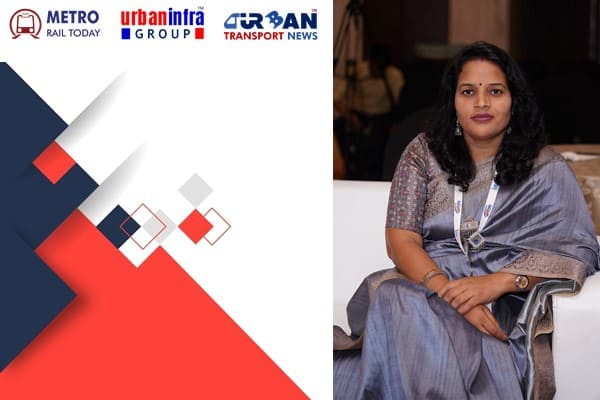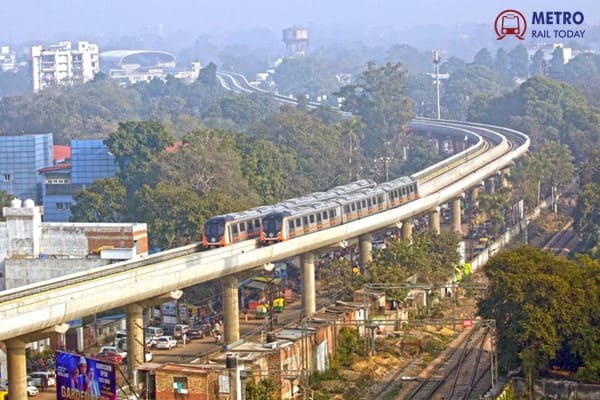 CMRL achieves second Tunnel Breakthrough at Thirumayilai for Chennai Metro Phase 2 Corridor 4
CMRL achieves second Tunnel Breakthrough at Thirumayilai for Chennai Metro Phase 2 Corridor 4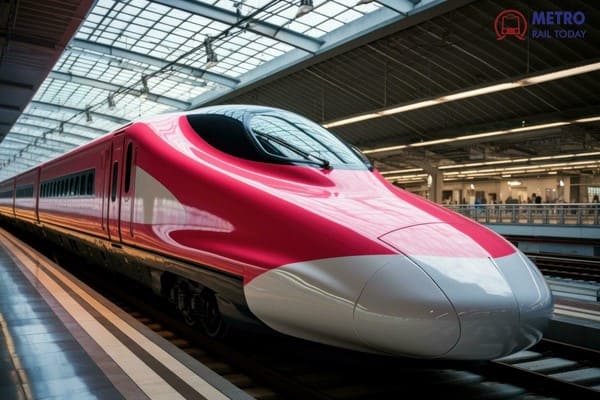 NHSRCL invites Single Tender from BEML for Bullet Train Rolling Stock Package
NHSRCL invites Single Tender from BEML for Bullet Train Rolling Stock Package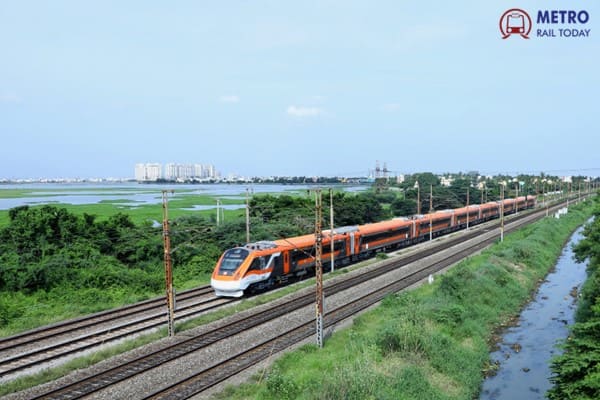 Railway Minister reviews progress of Ahmedabad–Dholera Semi High-Speed Rail Project
Railway Minister reviews progress of Ahmedabad–Dholera Semi High-Speed Rail Project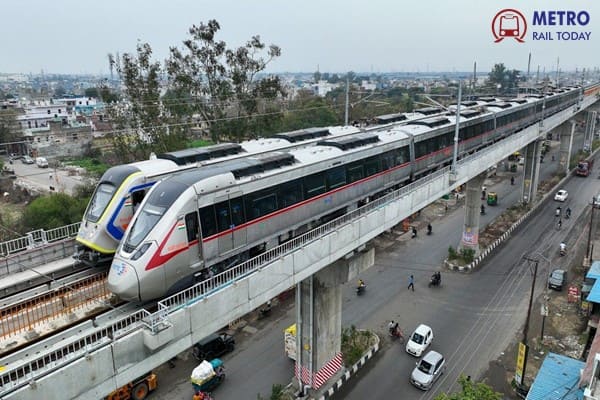 National Planning Group reviews key Rail & Metro projects under PM GatiShakti
National Planning Group reviews key Rail & Metro projects under PM GatiShakti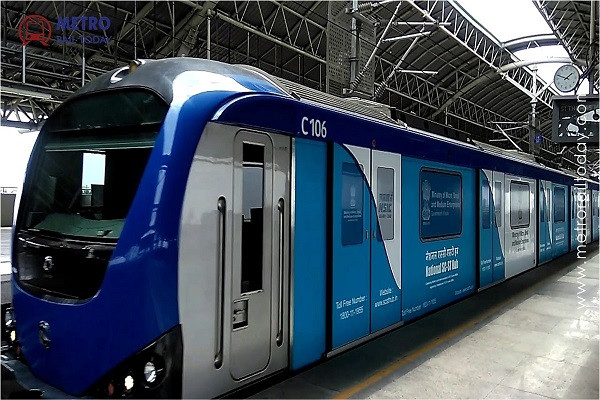 CMRS approves Driverless Metro Operations on first stretch of Chennai Metro Phase 2 Corridor 4
CMRS approves Driverless Metro Operations on first stretch of Chennai Metro Phase 2 Corridor 4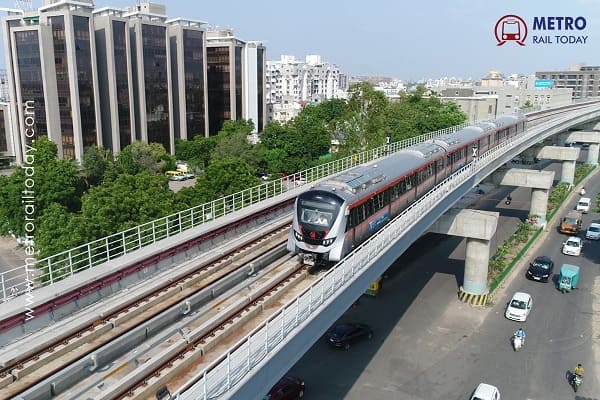 J Kumar Infraprojects completes Final Tunnel Breakthrough for Surat Metro Phase 1 Project
J Kumar Infraprojects completes Final Tunnel Breakthrough for Surat Metro Phase 1 Project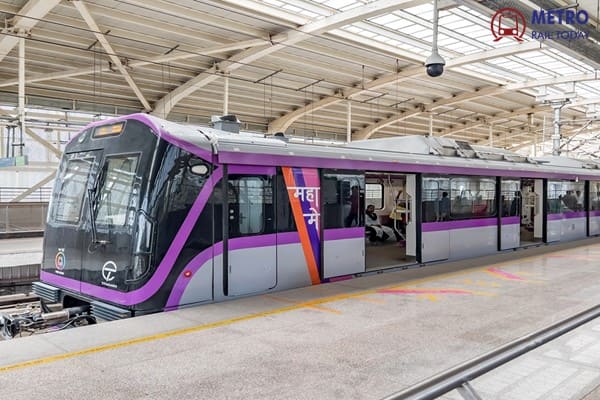 Apurvakriti Infrastructure awarded Ballastless Track Contract for Pune Metro Reach-1 Extension
Apurvakriti Infrastructure awarded Ballastless Track Contract for Pune Metro Reach-1 Extension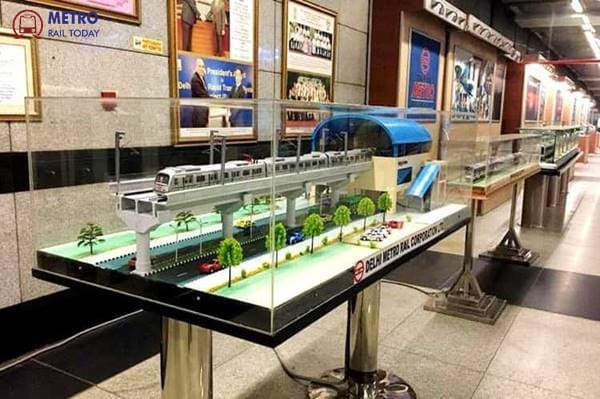 SAM India Builtwell bags first ₹222.76 Crore Civil Contract for Delhi Metro Phase V
SAM India Builtwell bags first ₹222.76 Crore Civil Contract for Delhi Metro Phase V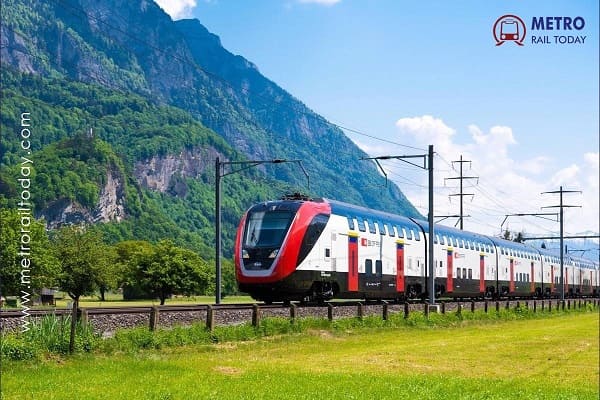 HRIDC conducts Investors Pre-Bid Meeting for Haryana Orbital Rail Corridor
HRIDC conducts Investors Pre-Bid Meeting for Haryana Orbital Rail Corridor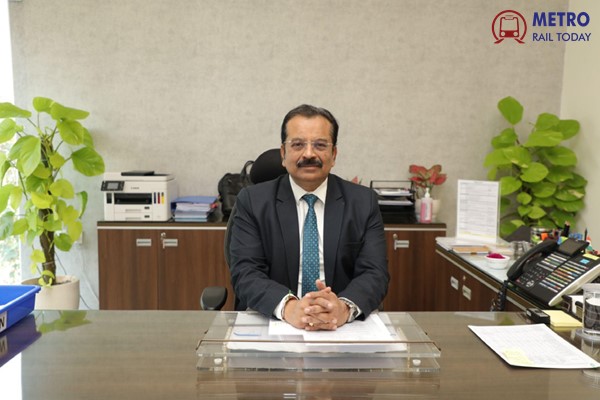 NCRTC Chief Shalabh Goel appointed as General Manager of Central Railway
NCRTC Chief Shalabh Goel appointed as General Manager of Central Railway
Meet Top 10 Trailblazing Indian Women Leaders in Rail and Metro Sectors

Women are undeniably shaping the landscape of India's rail and metro sectors with unparalleled vision and leadership. Traditionally dominated by men, these ten remarkable women leaders have not only broken through gender barriers but have also demonstrated their expertise, resilience, and commitment to transforming the transportation industry. From top managerial positions to key operational roles, these women are influencing strategic decisions, driving innovation, and contributing significantly to the growth and efficiency of rail and metro systems. Their collective impact not only exemplifies individual success stories but also signifies a broader shift towards inclusivity and gender diversity in sectors critical to the nation's infrastructure. As trailblazers, they are setting new standards, inspiring future generations of women to pursue careers in transportation, and playing a pivotal role in shaping the future of India's rail and metro sectors.
In celebration of International Women's Day 2024, we shine a spotlight on ten inspiring women who are leading the way in India's rail and metro sectors. These remarkable individuals are driving innovation, breaking barriers, and making significant contributions to the nation's transportation landscape.
1. Aruna Nayar: Paving the Way for Progress
Secretary, Railway Board, Ministry of Railways, Govt. of India
Aruna Nayar, an Indian Railway Personnel Service (IRPS) Officer from the 1987 batch, has left an indelible mark on the Indian Railways. With a Master's in Public Policy from the Australian National University, Nayar's extensive career includes key roles like Principal Chief Personnel Officer at Eastern Railway and Deputy CPO at Metro Railway/Kolkata. Notably, she is the first IRPS officer to be empanelled in IRMS Level-16. In January 2024, she assumed the pivotal position of Secretary, Railway Board, setting new standards for leadership.
2. Jaya Verma Sinha: A Historic Trailblazer
Chairperson & CEO, Railway Board, Ministry of Railways
Jaya Verma Sinha, the first female Chairman of the Railway Board in its 118-year history, took office on September 1, 2023. Her groundbreaking achievement during the Odisha train collision in June 2023 showcased her resilience and leadership. Sinha, with a career that spans as the Railway Advisor in the Indian High Commission in Dhaka, Bangladesh, has rewritten history as the first woman to head the Railway Board in its 166-year existence.
3. Seema Kumar: Driving Operations and Business Development
Member (Operations & Business Development), Railway Board, Ministry of Railways
Seema Kumar, an Indian Railway Traffic Service (IRTS) officer from the 1988 batch, brings a wealth of experience to her role as a Member (Operations & Business Development). Noteworthy for her tenure as Divisional Railway Manager in the Sealdah division and her commendable work during the Odisha train collision, Kumar assumed her current position in January 2024, adding a strategic perspective to the railway operations. Before this role, she was working as Chairperson-cum-Managing Director of the Indian Railway Catering & Tourism Corporation Limited (IRCTC).
4. Ashwini Bhide: Transformative Leadership in Mumbai
IAS & Managing Director, Mumbai Metro Rail Corporation (MMRC)
Ashwini Bhide has been a driving force behind significant urban infrastructure projects in Mumbai. Her leadership in projects like the Coastal Road project and Mumbai Metro Line 3 underscores her commitment to practical, scalable, and sustainable solutions. Currently heading the Mumbai Metro Rail Corporation, Bhide is at the forefront of executing the Colaba-Bandra-SEEPZ Metro Line 3, contributing to the city's development.
5. Namita Mehrotra: Financial Stewardship in Transportation
Director (Finance), National Capital Region Transport Corporation (NCRTC)
Namita Mehrotra, an IRAS officer, brings financial acumen to her role as Director (Finance) at NCRTC. With a background that includes key positions such as CEO in Zilla Parishad, Mehrotra's initiatives, like the successful launch of schemes such as Bharat Gaurav Trains, showcase her commitment to innovative and sustainable financial practices.
6. Dr. Namrita Kalsi: Architecting Sustainable Urban Transport
Chief Architect, Haryana Mass Rapid Transport Corporation (HMRTC)
Dr. Namrita Kalsi, a distinguished architect, channels her passion for sustainable urban development into her role as Chief Architect at HMRTC. With a focus on integrating aesthetics, functionality, and environmental considerations, Dr. Kalsi plays a pivotal role in designing transportation infrastructure that aligns with the principles of sustainability. Before this role, she was working as Chief Architect at Delhi Metro Rail Corporation Limited (DMRC).
7. Vinita Srivastava: Ensuring Integrity and Transparency
Chief Vigilance Officer, National Capital Region Transport Corporation (NCRTC)
In her role as Chief Vigilance Officer, Vinita Srivastava ensures transparency, integrity, and adherence to ethical standards within NCRTC. Overseeing vigilance activities, investigations, and preventive measures, Srivastava's commitment to upholding ethical standards is evident. Her prior leadership role in the directorate of Heritage, Railway Board, Ministry of Railways, adds depth to her expertise. Srivastava was the Executive Director (Heritage) at the Railway Board, Ministry of Railway and is an alum of the Chevening Research, Science and Innovation Leadership (CRISP) Programme, 2017.
8. Iti Pandey: Spearheading Operational Excellence
Divisional Railway Manager, Bhusawal Division, Indian Railways
Iti Pandey, currently serving as the Divisional Railway Manager of Bhusawal Division, plays a crucial role in ensuring operational excellence within Indian Railways. She is a 1998-batch officer of the Indian Railway Traffic Services (IRTS). Her responsibilities span managing train operations, infrastructure maintenance, and prioritizing passenger safety, contributing significantly to the seamless functioning of this critical operational unit.
9. Manju Gupta: Driving Efficiency in Railway Operations
Divisional Railway Manager, Bikaner Division, Indian Railways
With a robust background in railway operations and administration, Manju Gupta oversees the Bikaner Division as Divisional Railway Manager (DRM), covering a vast geographical area. She was the first female member of the Indian Railway Service of Electrical Engineers (IRSEE). After her induction, 14 more women followed Manju's example and entered the IRSEE. Her leadership ensures the smooth functioning of train services, infrastructure development, and overall passenger satisfaction, showcasing her dedication to driving efficiency in railway operations.
10. Rinaj Pathan: Engineering Excellence in Pune
Chief Engineer, Pune Metropolitan Region Development Authority (PMRDA)
Rinaj Pathan, an accomplished civil engineer, leads the engineering team at PMRDA. Her expertise in urban development projects focuses on infrastructure planning, execution, and quality control. Pathan's contributions enhance the livability and sustainability of Pune's metropolitan region, making her a key figure in the city's development.
In conclusion, these ten inspiring women leaders in India's rail and metro sectors are reshaping the landscape through their vision, expertise, and unwavering commitment. Their stories not only exemplify individual success but also contribute to breaking gender stereotypes and fostering inclusivity in traditionally male-dominated industries.





